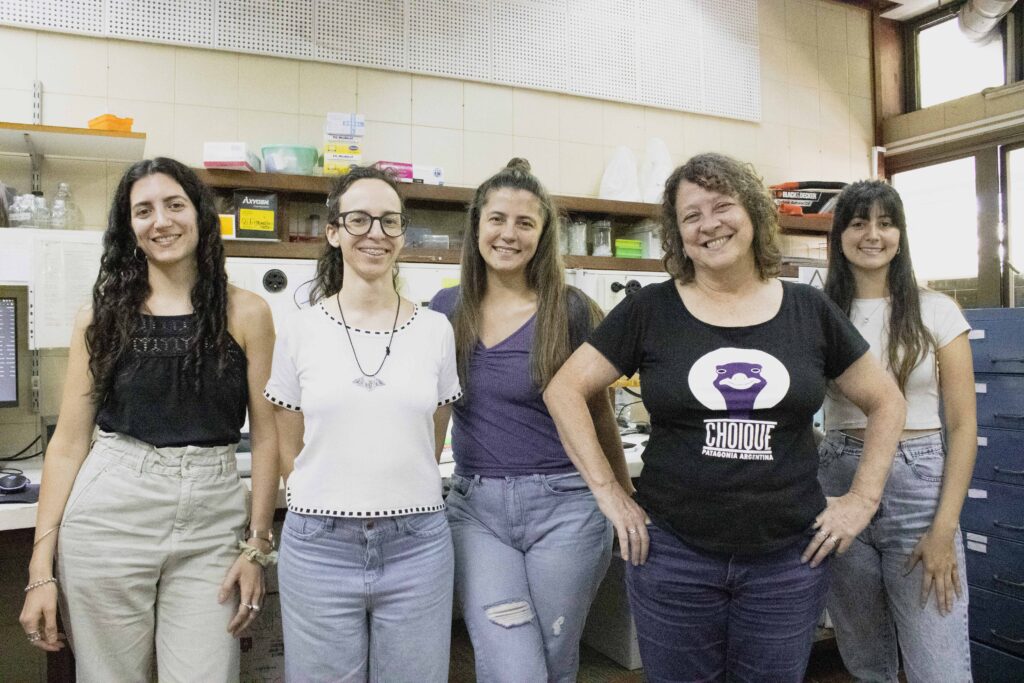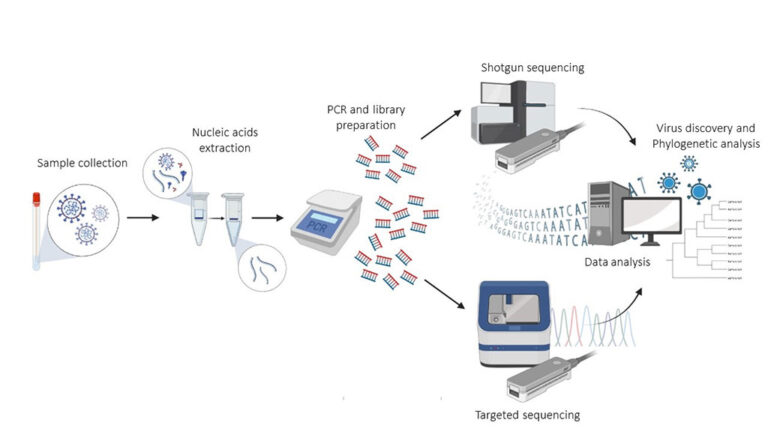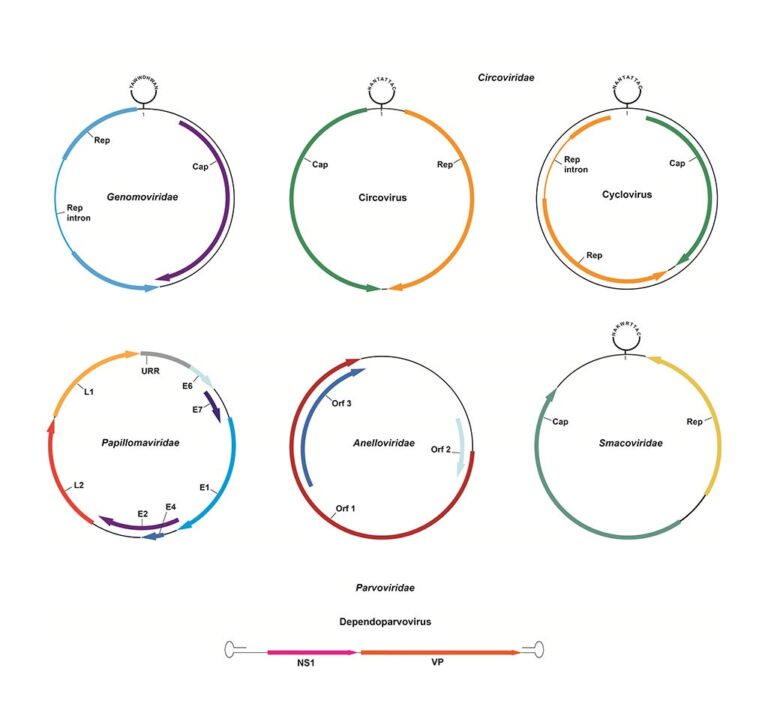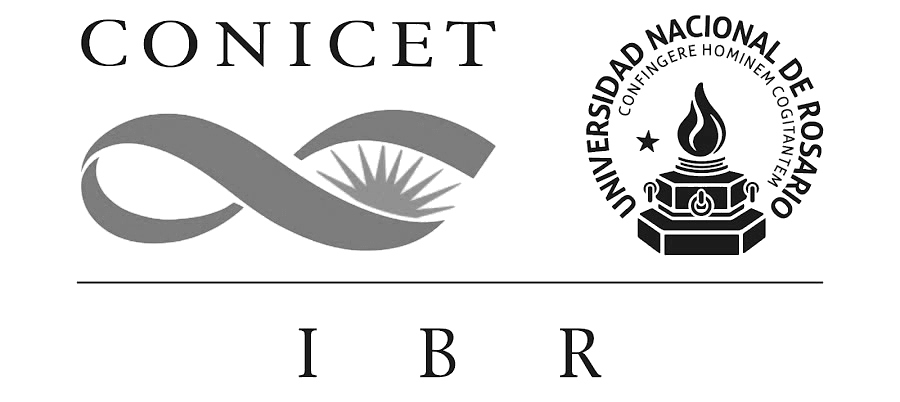research groups
Human Virology
summary

- Giri, Adriana Location: Facultad
Email: giri@ibr-conicet.gov.ar
- Garcia Rey, Julieta
RESEARCH LINES
Molecular epidemiology of viral infections and technological development for diagnosis
We conduct clinical studies to characterize the epidemiology of human papillomavirus (HPV) in mucosal epithelia and the association of HPV with the development of benign and malignant skin lesions, with an interest in the identification and molecular characterization of novel types. The family Papillomaviridae is one of the largest and most heterogeneous families of viruses infecting eukaryotic organisms whose members establish different interactions with the host, ranging from asymptomatic infections to cancer. To contribute to the taxonomy and to complete the evolutionary history of the family Papillomaviridae we extended our studies in wild animals of Argentina using various methodological tools to identify and characterize novel types of different genera and species. Tests developed within the framework of these projects have served as a platform for the creation of DETx MOL S.A. (https://www.detxmol.com.ar/) and have been extended to other viruses that cause human diseases. We are currently developing a SARS-CoV-2 protein detection kit using aptamers as molecular sensors. In this context, the interaction of the research group with the company constitutes a virtuous circle that increases and facilitates the opportunities in establishing technological links between the academy and the productive sector.
Metagenomic approaches for the identification and evolutionary analysis of new viruses
The use of deep sequencing platforms combined with bioinformatics programs has accelerated the discovery of new viruses in all ecosystems, providing new paradigms in viral taxonomy and changing the perception of viruses as sources of deadly threats to potential determinants of human and animal welfare. We apply these tools to respond to different problems that include: 1) the characterization of the virome of non-invasive biological samples collected from wild animals of Argentina with the aim of discovering new viruses, contributing to viral taxonomy, zoonotic virus surveillance and the conservation of threatened species; 2) genomic surveillance studies of SARS-CoV-2 in different sequencing platforms to learn about the circulating variants in Southern Santa Fe province and their evolutionary histories in response to the COVID-19 pandemic, as member group of the PAIS Project (http://pais.qb.fcen.uba.ar/); 3) the characterization of the cutaneous virome in health (healthy skin) and disease (psoriasis) in patients attending the Hospital Provincial del Centenario of Rosario through a case-control study with the aim of exploring potential risk factors that trigger the development of the disease and/or promote the exacerbation of the lesions.
Images of our research lines


PUBLICATIONS AND PATENTS
Viral Metagenomic Data Analyses of Five New World Bat Species from Argentina: Identification of 35 Novel DNA Viruses.
Viral Metagenomic Data Analyses of Five New World Bat Species from Argentina: Identification of 35 Novel DNA Viruses.
Cost-Effective Method to Perform SARS-CoV-2 Variant Surveillance: Detection of Alpha, Gamma, Lambda, Delta, Epsilon, and Zeta in Argentina.
Cost-Effective Method to Perform SARS-CoV-2 Variant Surveillance: Detection of Alpha, Gamma, Lambda, Delta, Epsilon, and Zeta in Argentina.
A Preliminary Study of the Virome of the South American Free-Tailed Bats (Tadarida brasiliensis) and Identification of Two Novel Mammalian Viruses.
A Preliminary Study of the Virome of the South American Free-Tailed Bats (Tadarida brasiliensis) and Identification of Two Novel Mammalian Viruses.
Assessing Gammapapillomavirus infections of mucosal epithelia with two broadspectrum PCR protocols.
Assessing Gammapapillomavirus infections of mucosal epithelia with two broadspectrum PCR protocols.
High prevalence of Gammapapillomaviruses (Gamma-PVs) in pre-malignant cutaneous lesions of immunocompetent individuals using a new broad-spectrum primer system, and identification of HPV210, a novel Gamma-PV type.
High prevalence of Gammapapillomaviruses (Gamma-PVs) in pre-malignant cutaneous lesions of immunocompetent individuals using a new broad-spectrum primer system, and identification of HPV210, a novel Gamma-PV type.
Sede CCT Rosario
Ocampo y Esmeralda, Predio CONICET-Rosario
2000 Rosario, Santa Fe, Argentina
Tel. 54-341-4237070 / 4237500 / 4237200
Sede Facultad de Ciencias Bioquímicas y Farmacéuticas
Universidad Nacional de Rosario - Suipacha 531
2000 Rosario, Santa Fe, Argentina
Tel. +54 341 4350596 / 4350661 / 4351235
🔬 El IBR suma 9 proyectos seleccionados en Investigación Orientada 2025 de @ProduccionSF y @CienciaSantaFe.
Biotecnología, salud y sostenibilidad para fortalecer el vínculo entre ciencia, innovación y desarrollo territorial.

